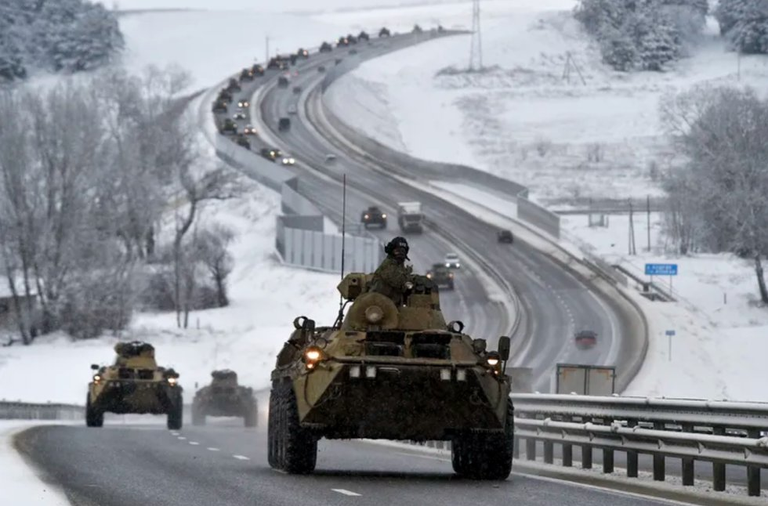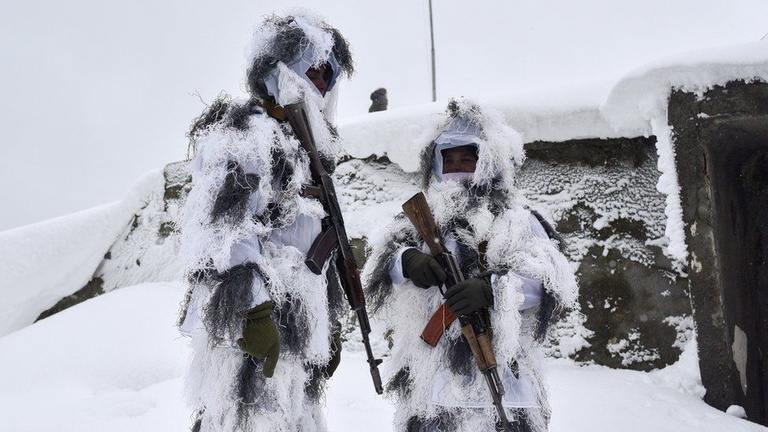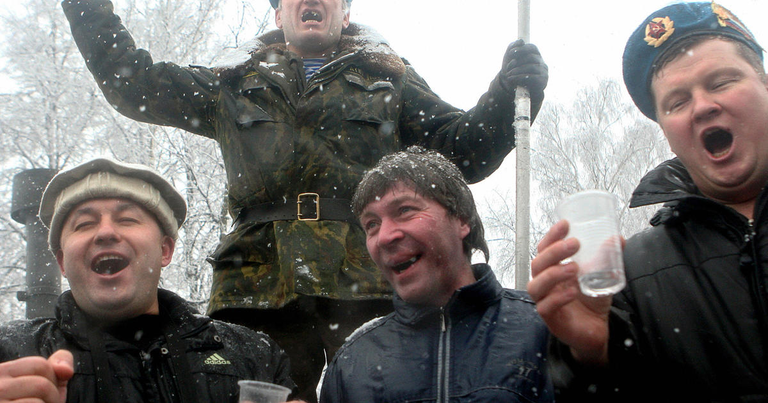Wars have always been pretty weather-dependent. A cold winter or a muddy spring can literally reverse the trajectory of a war, which is why military analysts often talk about "general frost" and "general mud." Ukraine has been no different in this respect. In the months leading up to the invasion, many analysts correctly predicted that Putin would have to invade before the winter ice thaws in late March, turning everything to mud and limiting vehicle and infantry mobility. Ten months on, as another winter sets in across Ukraine, the consensus amongst analysts seems to be that the consequent slowdown in military activity will benefit the Russians, who can use the time to consolidate their defensive positions and recycle their exhausted troops with new conscripts, while the Ukrainians struggle with their battered energy infrastructure. In the past, it has been true that General Frost has been arguably Russia's most reliable ally. However, while there are reasons to think that the winter might advantage the Russians, there are also reasons to think it might actually help the Ukrainians, who were sounding increasingly optimistic about the next couple of months.

So, let's start with the two reasons why General Frost will favor Russia. One, the winter will make it more difficult for Ukraine to launch new offensives like those seen in Kirsten and Kharkiv. Two, it will put even more pressure on Ukraine's dilapidated energy infrastructure, which Russia has been attacking with cruise missiles and drones for the past couple of months.
Let's start with the first reason: essentially, winter makes offensive advances much more difficult. Infantry advances become trickier not only because winter means less tree cover, but also because it makes moving troops about more logistically demanding. People need more resources to survive in the cold, including specialized equipment, more food, and better medical care, because even a small wound can become fatal if exposed for too long. Mechanized advances also become more difficult, as tanks and armored vehicles struggle to maintain traction on snowy or icy surfaces, and freezing temperatures can interfere with the performance of vehicle lubricants, fuel, and antifreeze. As these systems become less effective, artillery becomes increasingly important, and offensive operations become much more difficult. This is good news for the Russians, because they have a lot of artillery and are currently on the defensive, especially in the south. The Russians have started taking up defensive positions instead of offensive positions in order to try to buy themselves time to replenish and resupply their exhausted army, and possibly even cycle in new troops conscripted via partial mobilization.
General Frost can limit Ukraine's offensive capabilities and freeze the fighting, allowing the Russians, who are currently on the back foot, to get a much-needed chance to recover. Winter will also put pressure on Ukraine's dilapidated energy infrastructure. Russians have been targeting Ukraine's energy infrastructure, including power plants, substations, and cables, with caliber cruise missiles and Iranian-made Shah head drones in recent months. The UN has so far recorded over 700 individual strikes, which have damaged or destroyed about 50 percent of Ukraine's energy infrastructure, leaving some 10 million Ukrainians without reliable access to power. The winter will only exacerbate these problems, especially if Russia continues with strikes. This not only poses a humanitarian catastrophe, but also further stresses Ukraine's energy infrastructure, undermining Ukrainian logistics and limiting their ability to supply troops and stage further offensives.

Now, we should say that there are reasons for Ukraine to be optimistic here. For starters, the West is supplying both generators and anti-air systems, which should limit Russia's ability to strike energy-related targets. On top of that, there have been rumors that Russia is running low on caliber and Shah head stockpiles. Nonetheless, it is at least true that winter will put further strain on Ukraine's grid, causing massive harm and undermining Ukrainian logistics. So, those are two reasons to think the winter will benefit Russia. On to the second part of this article: why General Frost might actually benefit Ukraine. As we see it, there are two reasons to think this way. First, winter is worse for whoever has worse equipment and morale, and in this case, that's the Russians. Second, it will put further strain on Russia's logistics operation, which is already in serious trouble, especially in the south. Let's start with the first reason: equipment and morale.
For obvious reasons, winter weather makes demands on equipment and morale. Troops require better-insulated kits, sleeping bags, and even generators, and the freezing cold quickly eats away at morale. Unfortunately for the Russians, the evidence suggests they're low on both. There have been widespread reports of equipment shortages amongst new Russian conscripts, which the Kremlin actually admitted backing in October, and many have even resorted to buying their own kit online. Similarly, while it's hard to really measure morale in any way, there have been widespread reports of infighting and alcoholism amongst the Russian army, especially amongst new recruits, and multiple reports of Russian conscripts refusing to fight. Ukrainian morale on the other hand seems pretty high, which is in some sense unsurprising given the trajectory of the war and their recent successes on the battlefield in Kharkiv and Kirsten. On top of that, they should have the upper hand when it comes to equipment; at the time of writing, various Western countries have pledged to send much-needed winter gear to Ukraine. Clearly, in part thanks to the West, the Ukrainians should be way better prepared than the Russians this winter, which would give them the upper hand.

Onto the second reason: logistics. Winter puts extra strain on logistics operations because (1) troops and vehicles need more food, fuel, and equipment, and (2) transporting that stuff becomes more difficult in snowy or icy conditions. While this is going to make things tough for both sides, the Russian logistics operation has already proven itself to be pretty poor, and it's not clear whether it will be able to survive the winter. This is an especially acute problem in the south, where the attack on the Crimean bridge has made Russian forces increasingly reliant on rail lines and roads running via the Zaporizhia oblast into the Kherson oblast. As winter sets in and smaller roads become unusable, the problem will become even more acute. If the Ukrainians can get within firing distance of either the rail line or the highway, the Russians in the south will be cut off, and the bulk of the Russian army will be vulnerable to the freezing winter.